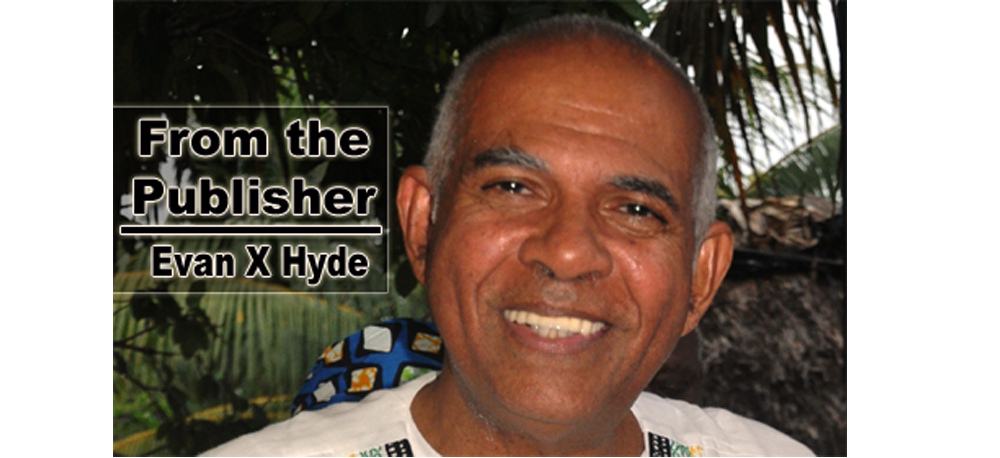The following are the words with which the honorable Clinton Canul Luna ended the last column he published in this newspaper, in the issue of Friday, August 4, 2023. He had sent the column just a couple days before he left us forever on Tuesday, August 1, 2023.
“ … I think about my little Belize, and about its future, because we still don’t know what will be the end, since the International Court of Justice is not an independent department, but is managed by the power that dominates the United Nations. Everyone knows that. I hope Belize stays intact, but I personally doubt it. Even so, what remains, hopefully, can be for the good of all Belizeans.”
The written stages of the arguments between Guatemala and Belize ended a couple months ago, I believe, and soon enough there will be the oral arguments. Attorney Michael Peyrefitte, a Senator and the chairman of the Opposition United Democratic Party (UDP), said this week that he thinks some kind of resolution of the issue will take place in 2025.
Speaking as a citizen writer, I feel there is an unspoken but constant unease amongst the Belizean people with respect to this ICJ business, although all the public noise has been about the Port Coral, Waterloo, and Portico cruise terminal conflict, which involves Stake Bank, Belize City, and the Northern Lagoon/Southern Lagoon areas.
In British Honduras, the nineteenth century, regionally speaking, was a period of almost complete darkness for us educationally. In my conversations with Mr. Luna, he emphasized the Monroe Doctrine declared by the United States in 1823, and the two treaties between the U.S. and the United Kingdom in the 1850s, which were the Clayton-Bulwer and Dallas-Clarendon treaties.
(I have said to you before that I believe the big reason I became a rebel was because I could not understand how I could go to school here from 1952 to 1965 and be taught absolutely nothing about the Caste War, which began in 1847 just north of us and was so significant in the history of Belize.)
Luna would smile cynically at all the flag-waving in Belize having to do with the 1798 Battle of St. George’s Caye. I think this was because he believed the whole Belize-Guatemala issue today is about the business and industrial interests of the United States and its corporations.
Washington allowed Guatemala to bully us into going to the ICJ, where we Belizeans now risk our very existence as a territory. I say “allowed,” because Guatemala is forty times larger than Belize. In a military sense, Belize is allowed to exist by the claimant, Guatemala. But the United States is the undisputed powerhouse of this region, and in the world, in fact. So Guatemala can do nothing without the permission of the U.S.
In school in British Honduras, we were taught nothing about the period between say 1821, when Guatemala became independent of Spain, and 1840, when after a series of military conflicts in Central America, conservative Guatemala, under Rafael Carrera, emerged as the strongest country (and an American surrogate) by defeating the liberal forces, led by Honduras’ Francisco Morazan, supported by Salvador.
The 1859 Treaty, which is germane to the ICJ deliberations, was “godfathered” by the U.S. between Great Britain and Guatemala’s Carrera.
It appears that the land and sea of Belize are much more wealthy in the resources which the corporations of the world powers need to do their manufacturing, and maintain and improve their standard of living.
Our African ancestors were brought here by British pirates and settlers to do their hard work extracting logwood and mahogany for export. When the forests of Belize began to be depleted, perhaps eighty years or so ago, we Afro-descendants, I think, believed that we, the clear majority of the population, would inherit the 8,867, with the support of the British, for whom we had labored as slaves and colonials for centuries.
This could be a long discussion, beloved, but what intrigues me, as a writer in the English language, is the fact that English remains the official language in Belize, despite the fact that the demographic and economic power is in the hands of our Maya/Mestizo population. If Belize’s official language were changed from English to Spanish, all our multimillionaire attorneys would have to migrate to the Caribbean in order to practise.
A couple of my children are fluent in Spanish (their mother is part Maya), but a couple of my other children struggle with Spanish, as I do. There are Belizeans, like Mr. Seb Cayetano, who understand and speak several languages fluently. Not I. I did well in school in Belize because, linguistically, I am English. So English as Belize’s official language was and is my cup of tea.
The main points of this column are, one, that the territory of Belize has much more “wealth untold” than the vast majority of us natives were ever aware, and, two, the official language is and will probably remain English. But, Clinton Canul Luna’s thinking, based largely on his deep knowledge of our region and its nineteenth century history, was: “I hope Belize stays intact, but I personally doubt it.”

